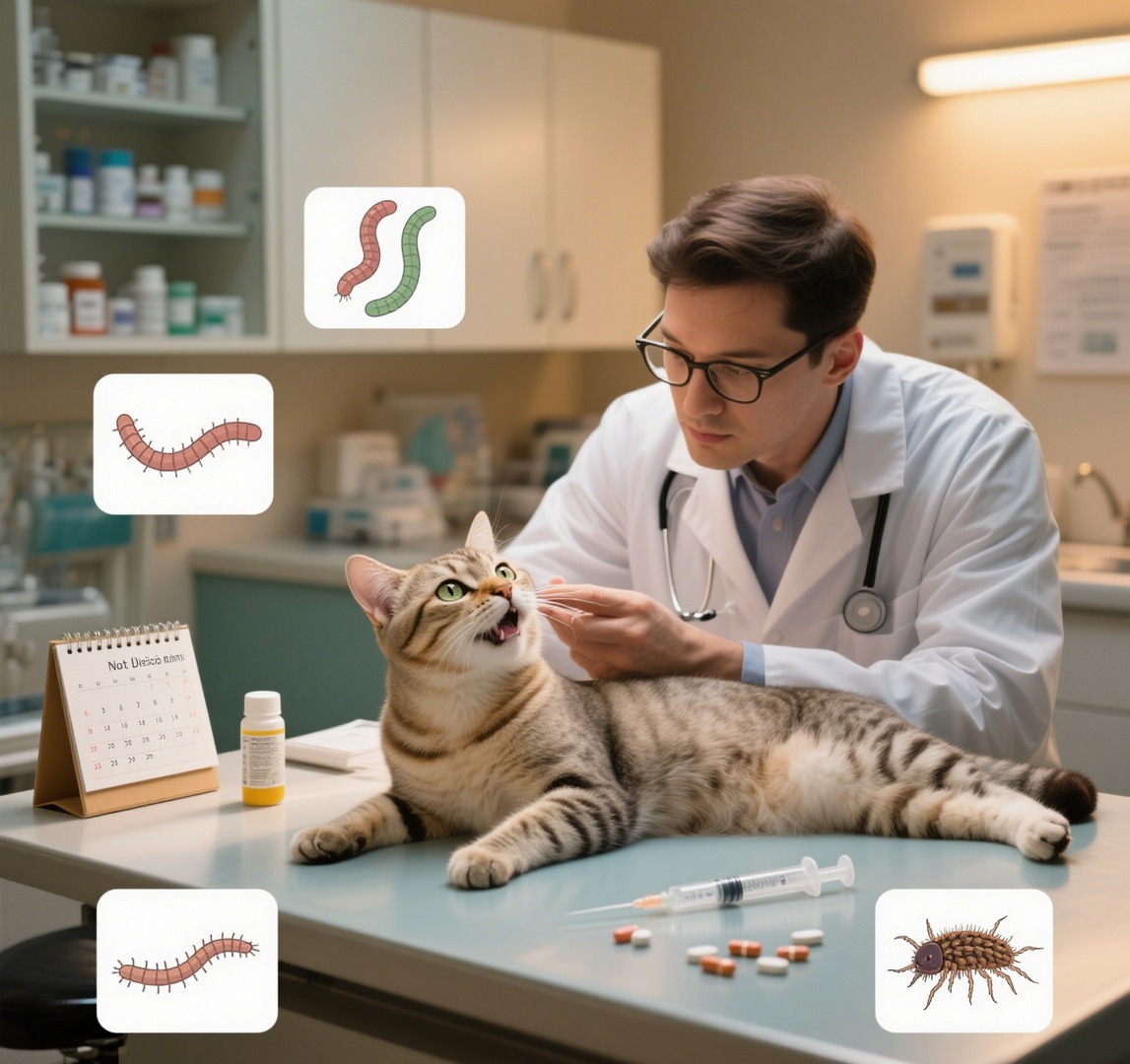
1.1 Internal Parasites
• Ascarids (Roundworms): The most common intestinal parasites, often causing vomiting, diarrhea, and weight loss.
• Hookworms: Penetrate through skin or ingestion, leading to anemia and weakness.
• Tapeworms: Contracted via ingestion of fleas or raw meat; segments resembling grains of rice may appear in feces.
• Whipworms: Less common, but can induce chronic diarrhea and dehydration.
1.2 External Parasites
• Fleas: Cause intense itching and can transmit tapeworm larvae.
• Lice: Lead to hair loss and increased dandruff.
• Ticks: Feed on blood and may transmit agents such as Lyme disease.
• Mites: Include ear mites and mange mites, resulting in ear infections, hair loss, and dermatitis.
2. Necessity of Regular Deworming
2.1 Impact on Feline Health
• Prevents Nutritional Depletion: Parasites consume vital nutrients, leading to poor appetite and weight loss.
• Reduces Organ Damage: Heavy infestations can harm the intestines, liver, and lungs.
• Enhances Immune Function: Deworming supports overall health and disease resistance.
2.2 Zoonotic Risks
• Transmission to Humans: Hookworms and roundworms can infect humans, posing risks to children and immunocompromised individuals.
• Environmental Contamination: Deworming reduces parasite eggs in litter and carpeting, safeguarding the household.
3. Common Deworming Protocols and Frequency
3.1 Internal Parasite Protocols
• Pyrantel Pamoate: Targets roundworms and hookworms; administer every 3 months for cats aged 2 weeks and older.
• Praziquantel: Effective against tapeworms; recommended every 3–6 months for cats aged 6 weeks and older.
• Fenbendazole: Broad-spectrum dewormer; follow veterinarian guidance for dosage and frequency.
3.2 External Parasite Control
• Spot-On Treatments: Monthly applications prevent fleas and ticks, often combined with internal dewormers.
• Sprays and Shampoos: Applied every 2–4 weeks depending on infestation severity.
• Oral Chewables: Comprehensive protection in a single dose; follow label instructions.
4. Selecting Appropriate Deworming Products
4.1 Comparative Efficacy and Safety
• Safety Profiles: Choose formulas specifically designed for kittens, pregnant, or lactating cats.
• Spectrum of Activity: Opt for broad-spectrum products to minimize treatment frequency.
4.2 Side Effects and Precautions
• Common Reactions: Mild vomiting or transient diarrhea may occur.
• Veterinary Consultation: Always calculate dosages based on weight and review any history of drug sensitivities.
5. Preventive Care and Maintenance
• Regular Veterinary Check-Ups: Semi-annual exams with fecal testing to confirm parasite control efficacy.
• Environmental Hygiene: Daily litter maintenance and routine vacuuming to remove eggs and larvae.
• Nutritional Support: High-quality protein diets bolster immune defenses; avoid raw feeding.
• Physical Activity: Regular play and exercise promote gastrointestinal motility.
Conclusion
Regular deworming is a critical component of responsible feline care, ensuring both cat and household health. By understanding parasite life cycles, adhering to recommended treatment schedules, and maintaining diligent environmental hygiene, owners can safeguard their pets and families from the risks posed by internal and external parasites.



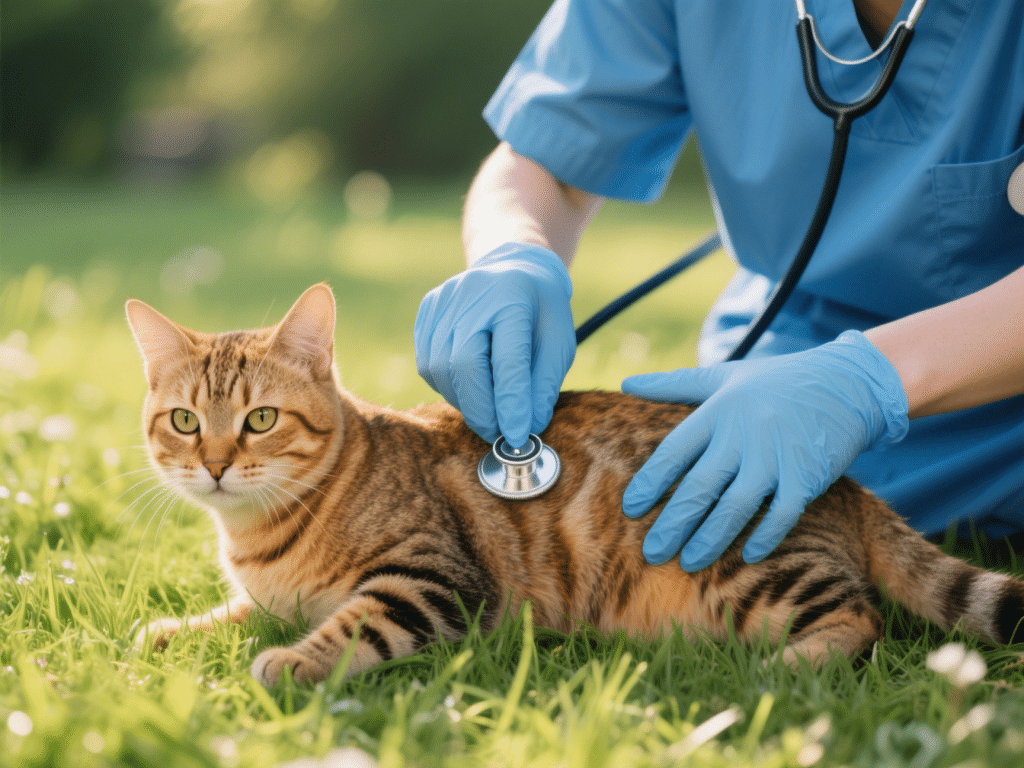
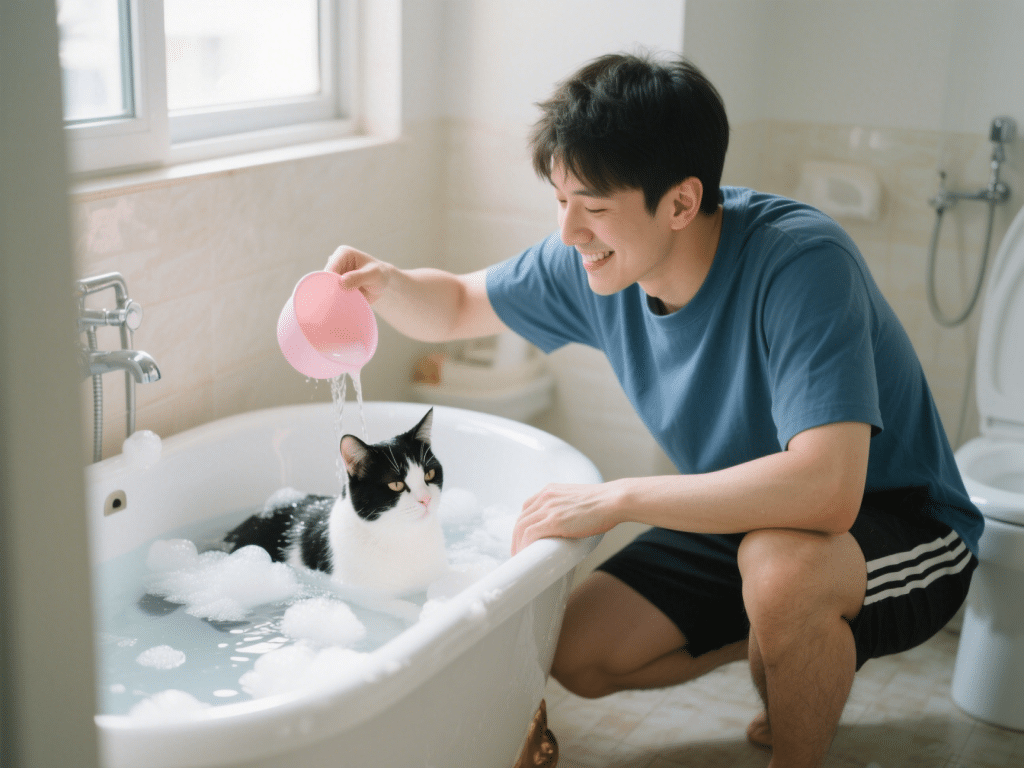
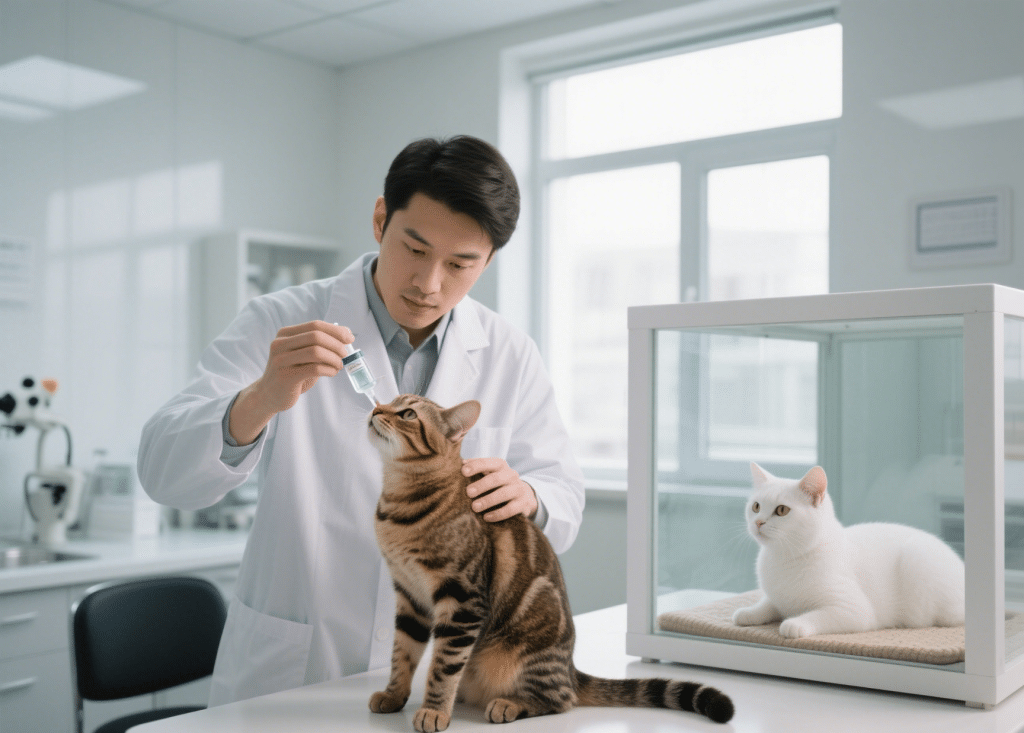
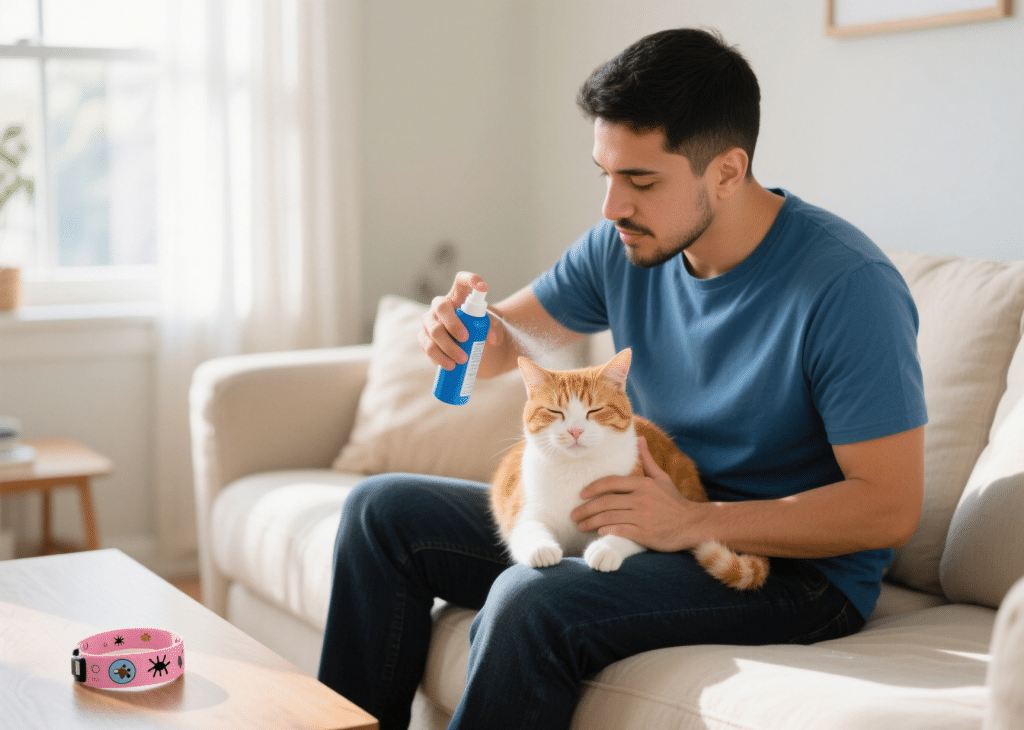

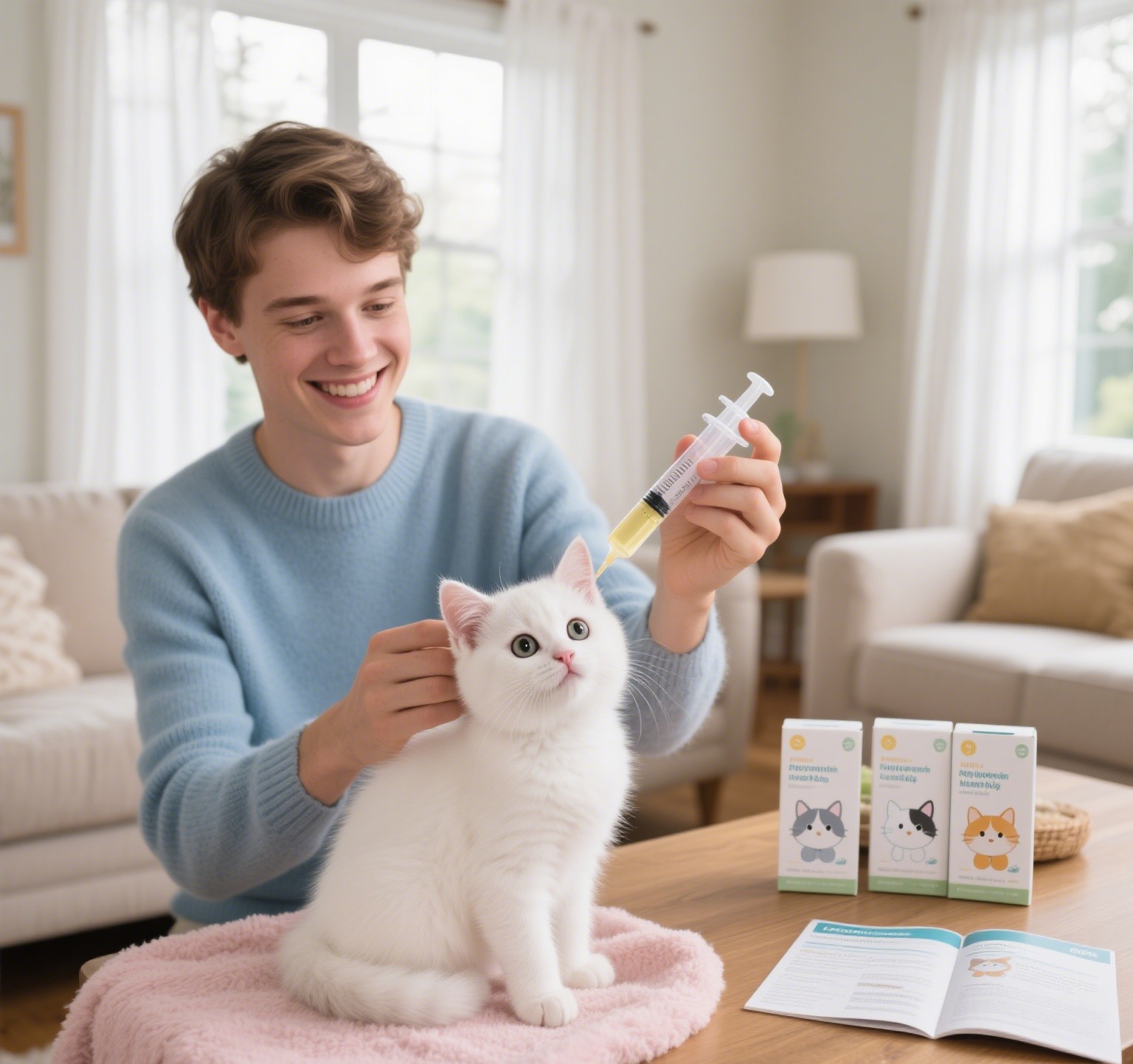
Comments on " Why Cats Require Regular Deworming: Understanding Internal and External Parasites" :